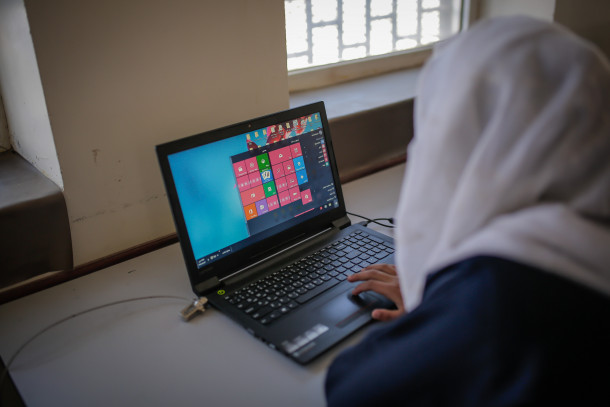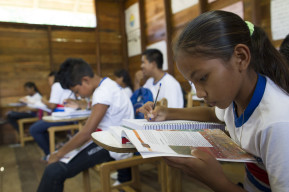News
UNESCO leads consultations to develop a Learning Assessment Framework for the Arab region

Alpha, Beta, Gamma, Delta, Omicron… With all the viral mutations and ongoing infection waves, it looks like the COVID-19 pandemic is here to stay. It has already caused a global education crisis, sponsored an impromptu worldwide shift towards remote /online and blended/hybrid ICT-based teaching and learning solutions, and exacerbated existing multidimensional challenges and inequalities, all while snowballing school dropout and learning poverty rates and costing students two years of learning in its wake.
The MENA region and the Arab region are no exception. Students thereacross have been disproportionately affected by the pandemic and ensuing school closures, which has led to very different levels of knowledge and skills among peers. In fact, while some were able to continue learning through various remote/online and blended/hybrid modalities, including online learning platforms, television and radio, others – mainly from disadvantaged backgrounds – either sporadically participated in learning or stopped learning altogether and thus suffered greater losses.
With learning completely or partially moved from the classroom to virtual/remote settings, and with all the learning disruptions, the policymakers, school administrators, learning assessment specialists, curriculum developers, teachers and parents-turned-teachers are trying to understand whether students are really learning and assimilating the content that is presented to them in formats that differ from conventional setups. Are the new, remote, blended and digital modalities effective? Are students learning what is expected from them? To what extent do they understand the lessons and course materials? Are they able to put their acquired knowledge and skills into practice?
There is not much clarity on the answers to these questions as many countries do not collect learning data frequently and learning assessments are not always used effectively to be informative. That and, amid the pandemic, traditional learning assessment modalities, which mainly relied on students’ physical presence – either for administration of tests or for monitoring students’ daily progress – have been reviewed and contested following controversy about their effectiveness and integrity in remote/online education settings.
Here, it is imperative to note the importance of learning assessment, a fundamental mechanism, which - if used correctly - helps evaluate what students know, understand and can do with the aim of identifying learning gaps and student needs, providing feedback to support learning recovery and achieve expected goals, and helping teachers improve instruction and pedagogy accordingly. Not only that, learning assessment also helps planners design and improve curricula, and informs reforms related to learning and learning assessment policies, practices and methods.
Given that there is no one-size-fits-all solution to adapt to the new normal, mainly because resources, capacities and levels of preparedness vary significantly from one country to another, it is crucial to provide guidance and support for Arab States to establish and/or improve their national learning assessment systems to enhance students’ learning outcomes in the service of quality learning for all.

In light of the above, UNESCO Beirut, in partnership with the Arab Bureau of Education for the Gulf States (ABEGS), has launched a consultation process to inform the development of a Learning Assessment Framework for the Arab region (LAF). The Framework will constitute a reference document that provides an overview on learning assessment, highlights its evolving understandings and roles and presents key considerations for establishing/improving national learning assessment systems and informing relevant policies by considering the complementarity of summative and formative assessment. It will also showcase recent, relevant trends and good practices from the region and the world with focus on assessment during the pandemic, including the opportunities new technologies provide, and will thus facilitate inter- and intraregional knowledge sharing.
While emphasizing the importance of using a variety of fit-for-purpose learning assessment methods in a complementary way, the Framework advocates the added value of formative assessment (i.e. school-, clarssrooom- and teacher-based assessment – assessment for learning) as a means of motivating learners and effectively supporting them in their learning progression. At the same time, it advocates that all forms of assessment be designed and implemented as opportunities to learn, that is envisaging assessment as learning.
Consultations are ongoing. The draft Learning Assessment Framework for the Arab Region (LAF) will be discussed and revised with different categories of stakeholders until March 2022. Following the public consultation phases, LAF will be comprehensively reviewed then published in English and Arabic in the second part of the year.
In collaboration with ABEGS, UNICEF MENARO and other partners, UNESCO Beirut is planning a series of webinars to help improve LAF, as well as training webinars with special focus on formative assessment. A calendar of learning assessment –related events will be announced by mid-March 2022 in the context of launching a learning assessment community of practice for the Arab Region.
Related resources






